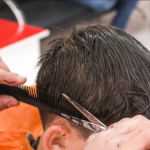An adjective is a word that describes or modifies a noun or pronoun, providing more information about its qualities, characteristics, or attributes. Adjectives play a crucial role in adding detail and vividness to language, helping to create a clearer picture in the reader’s or listener’s mind.
Types of Adjectives:
-
Descriptive Adjectives:
- Definition: Descriptive adjectives provide information about the physical or sensory qualities of a noun.
- Examples:
- Beautiful: She wore a beautiful dress.
- Sunny: The day was sunny and warm.
- Enormous: They lived in an enormous house.
-
Quantitative Adjectives:
- Definition: Quantitative adjectives indicate the amount or quantity of a noun.
- Examples:
- Many: There are many books on the shelf.
- Few: I have a few apples left.
- Several: Several students scored top marks.
-
Demonstrative Adjectives:
- Definition: Demonstrative adjectives point out or specify a particular noun.
- Examples:
- This: This car is brand new.
- These: These shoes are comfortable.
- That: I like that movie.
-
Possessive Adjectives:
- Definition: Possessive adjectives indicate ownership or possession.
- Examples:
- My: This is my house.
- Your: Is this your pen?
- Their: I met their parents yesterday.
-
Interrogative Adjectives:
- Definition: Interrogative adjectives are used to form questions and seek information about a noun.
- Examples:
- Which: Which book do you prefer?
- Whose: Whose car is parked outside?
- What: What color is your car?
-
Definite and Indefinite Adjectives:
- Definite Examples:
- The: I met the manager of the company.
- Those: Those books belong to the library.
- This: This dress is on sale.
- Indefinite Examples:
- Some: I bought some groceries.
- Any: Do you have any plans for the weekend?
- Several: Several students attended the event.
- Definite Examples:
-
Articles:
- Definite Example:
- The: The cat is sleeping on the roof.
- Indefinite Examples:
- A: I need a new laptop.
- An: She bought an expensive necklace.
- Definite Example:
-
Comparative and Superlative Adjectives:
- Comparative Examples:
- Taller: He is taller than his brother.
- More comfortable: This chair is more comfortable.
- Faster: The cheetah is faster than other animals.
- Superlative Examples:
- Tallest: He is the tallest person in the room.
- Most comfortable: This is the most comfortable bed.
- Fastest: The cheetah is the fastest land animal.
- Comparative Examples:
-
Emphasizing Adjectives:
- Examples:
- Own: She has her own car.
- Very: It was a very interesting movie.
- Only: This is the only option.
- Examples:
-
Compound Adjectives:
- Hyphenated Examples:
- Well-known: He is a well-known artist.
- High-powered: She drives a high-powered car.
- Two-year-old: The child is a two-year-old.
- Not Hyphenated Example:
- Red carpet: The event had a red carpet entrance.
- Hyphenated Examples:
Understanding the different types of adjectives allows for more precise and nuanced expression in writing and speech. Adjectives contribute significantly to the richness of language by providing a detailed and vivid description of the nouns they modify.
A) Red
B) The
C) Car
Show/Hide
Answer: A) Red
Explanation: “Red” is the descriptive adjective providing information about the color of the car.
A) Is
B) This
C) Your
Show/Hide
Answer: C) Your
Explanation: “Your” is the possessive adjective indicating ownership or possession.
A) Demonstrative
B) Quantitative
C) Possessive
Show/Hide
Answer: B) Quantitative
Explanation: “Many” is a quantitative adjective indicating the amount of friends.
A) Sweeter
B) This
C) One
Show/Hide
Answer: A) Sweeter
Explanation: “Sweeter” is the comparative adjective comparing the sweetness of two cakes.
A) Those
B) Shoes
C) Sale
Show/Hide
Answer: A) Those
Explanation: “Those” is the demonstrative adjective specifying the particular shoes.
A) Need
B) A
C) New
Show/Hide
Answer: B) A
Explanation: “A” is the indefinite article introducing a non-specific new phone.
A) Which
B) Book
C) Yours
Show/Hide
Answer: C) Yours
Explanation: “Yours” is the interrogative adjective specifying the ownership of the book.
A) Demonstrative
B) Quantitative
C) Descriptive
Show/Hide
Answer: B) Quantitative
Explanation: “Both” is a quantitative adjective indicating the number of movies enjoyed.
A) She
B) The
C) Smartest
Show/Hide
Answer: C) Smartest
Explanation: “Smartest” is the superlative adjective indicating the highest level of intelligence.
A) This
B) The
C) Only
Show/Hide
Answer: C) Only
Explanation: “Only” is the emphasizing adjective, emphasizing the singular nature of the option.





